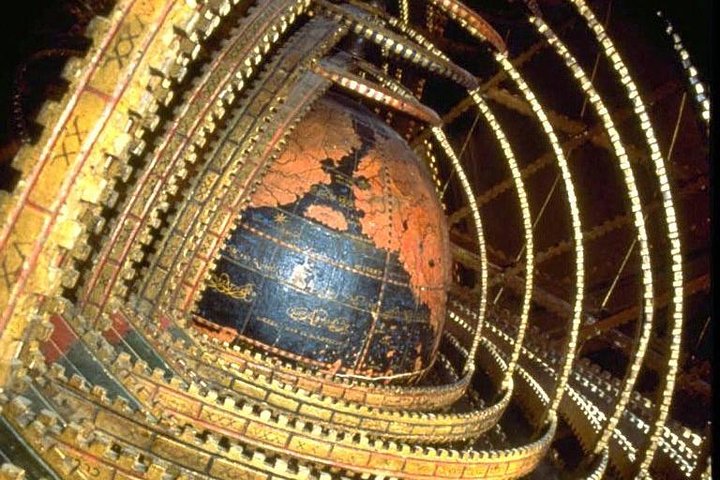Skip the Line: Galileo Museum Ticket
» Florence » Florence » Florence
From $18.01
32 reviews (3.84)
Price varies by group size
Lowest Price GuaranteePricing Info: Per Person
Duration:
Departs: Florence, Florence
Ticket Type: Mobile or paper ticket accepted
Free cancellation
Overview
If you are in Florence don't miss the new Galileo Museum, formerly Institute and Museum for the History of Science, dedicated to science and the famous Pisan scientist Galileo Galilei. See extraordinary pieces such as Galileo’s telescope, historic world maps and globes, and a series of surprising amusements such as machines that create optical illusions.
What's Included
Guaranteed to skip the long lines
What's Not Included
Food and drinks
Hotel pickup and drop-off
Transportation to/from attractions
Traveler Information
- CHILD: Age: 0 - 6
- YOUTH: Age: 7 - 18
- ADULT: Age: 19 - 65
- SENIOR: Age: 66 - 99
Additional Info
- Face masks required for guides in public areas
- Gear/equipment sanitised between use
- Hand sanitiser available to travellers and staff
- Infants are required to sit on an adult’s lap
- Public transportation options are available nearby
- Regularly sanitised high-traffic areas
- Social distancing enforced throughout experience
- Temperature checks for travellers upon arrival
- The use of the mask is mandatory for visitors and museum staff during the whole time spent inside the museum.
- Wheelchair accessible
- Access for visitors with disabilities: Visitors with reduced mobility can use the entrance in Lungarno Anna Maria de’ Medici, where they can call for assistance if required. The museum is entirely barrier-free.
- Face masks required for travellers in public areas
- Guides required to regularly wash hands
- Important note: you will be assigned an exact entrance time which will be the one you have to respect in order to make the visit. The time can be any time during the opening time and will be indicated on the voucher issued by the provider, within one busi
- PLEASE NOTICE: Confirmed time is not always the same time you requested; museum automatically confirms the closest available time (any time) on the same date if requested time is sold out.
- Regular temperature checks for staff
- School/class bookings need to be made directly with the museum
- Suitable for all physical fitness levels
- The museum has adopted a variety of rules in order to limit the possibility of contagions: - Limitation of entrances and exit - Social distancing in places like restourants, shops, and public places inside the museum - Use of signs to enforce the physical
- Transportation vehicles regularly sanitised
Cancellation Policy
All sales are final. No refund is available for cancellations.
What To Expect
Museo Galileo - Institute and Museum of the History of Science
The Medicean collection of scientific instruments was begun by Cosimo I (1519-1574), who housed it in the “Wardrobe” of the Palazzo Vecchio, known today as the "sala delle carte geografiche" (Map Room). With the foundation of the Accademia del Cimento (1657), inaugurated by Ferdinand II (1610-1670) and Leopold de\' Medici (1617-1675) for the purpose of conducting the experimental investigation of nature, the collection was enriched with new instruments designed mainly for thermometric, barometric, and pneumatic research. The Accademia was located in the Pitti Palace where all the instruments in the Medici collection were subsequently moved. After their decline during the Napoleonic occupation (1799-1814), the museum and its workshops were reorganized upon the return to power of the Lorraine Family. After the Unification of Italy, the collections were dispersed among several university departments. In 1922, thanks to the promoters of the "Group for the Preservation of National Scientific Heritage," the collections were rescued from abandonment. In 1927, thanks to their commitment, the Istituto di Storia delle Scienze (The Institute of the History of Science) was founded, with the goal of "collecting, cataloging, and restoring" the scientific collections. In 1929, the newborn Institute organized the First National Exhibition of the History of Science in Florence. In 1930, following the show, the University of Florence opened the permanent exhibition of the Istituto di Storia della Scienza at Palazzo Castellani to the public. It included the Medici-Lorraine collection of instruments. After the damage caused by the bombings that destroyed the bridges of the Lungarno at the end of the Second World War (1944-45), another hard blow was dealt to the collection by the flood of 1966. The instruments that were stored in the basement and ground floor of the Museo were seriously damaged. Thanks to international solidarity and the efforts of Maria Luisa Righini Bonelli, then-director of the Museum, it was possible to quickly carry out recovery of the instruments, reopen the exhibition rooms to the public, and focus again on library collecting and research activities.
• Admission Ticket Included
« All Activities







 English (Canada)
English (Canada) Español (Argentina)
Español (Argentina) Español (Chile)
Español (Chile) Español (Colombia)
Español (Colombia) Español (México)
Español (México) Español (Perú)
Español (Perú) Español (Venezuela)
Español (Venezuela) Français (Canada)
Français (Canada) Português (Brasil)
Português (Brasil) English
English Dansk
Dansk Deutsch (Österreich)
Deutsch (Österreich) Deutsch (Schweiz)
Deutsch (Schweiz) Deutsch
Deutsch English (UK)
English (UK) English (Ireland)
English (Ireland) Español
Español Français (Belgique)
Français (Belgique) Français (Suisse)
Français (Suisse) Français
Français Italiano (Svizzera)
Italiano (Svizzera) Italiano
Italiano Nederlands (België)
Nederlands (België) Nederlands
Nederlands Norsk
Norsk Português (Portugal)
Português (Portugal) Svenska
Svenska English (Australia)
English (Australia) English (Hong Kong)
English (Hong Kong) English (India)
English (India) English (Malaysia)
English (Malaysia) English (New Zealand)
English (New Zealand) English (Philippines)
English (Philippines) English (Singapore)
English (Singapore) 日本語
日本語 English (South Africa)
English (South Africa)